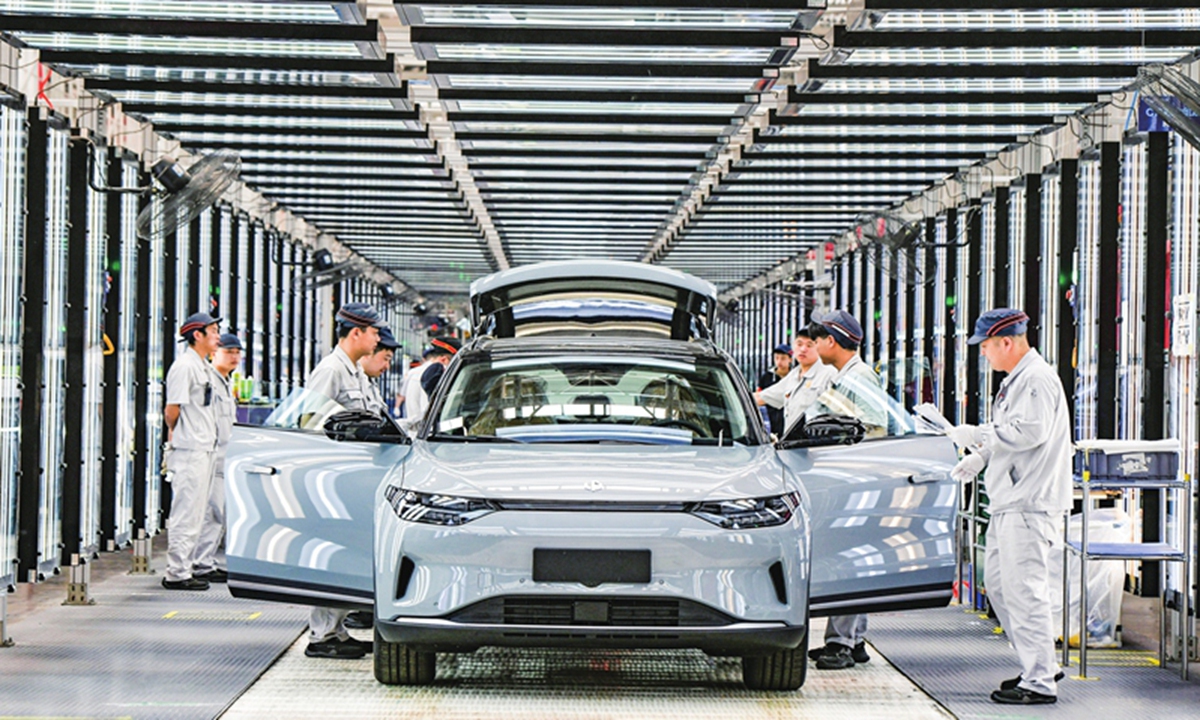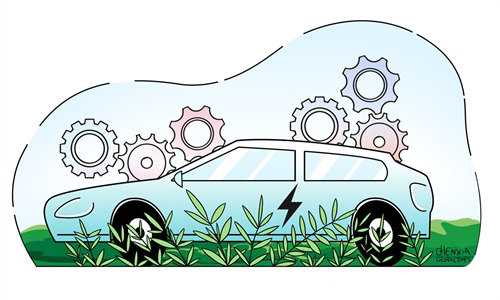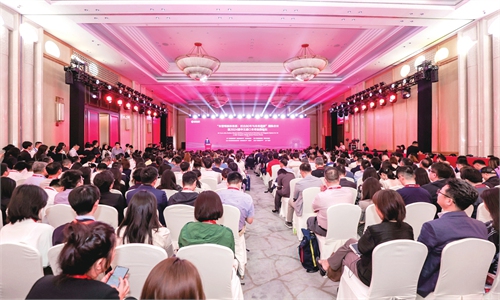Following US tariff hikes on Chinese products not in Europe's interests: former Italian minister

Workers complete assembling an electric vehicle (EV) at China's EV start-up Leapmotor in Jinhua, East China's Zhejiang Province on April 1, 2024. The smart EV factory delivered 14,567 new vehicles in March, a yearly increase of 136 percent. Photo: VCG
It is not in the interests of Europe to follow the US policy of imposing tariffs on Chinese products, considering each other's comparative advantages and the benefits of globalization and free trade, Giovanni Tria, former Italian minister of economy and finance and current professor of economics at the University of Rome Tor Vergata, told the Global Times on Tuesday, while urging Beijing and Brussels to rebuild a certain level of trust on the issue.
"Globalization means that there is a level of interdependence among countries, but now the feeling is that interdependence equates with dependence. After the pandemic, some may think that certain imports could be stopped and search for more autonomy [in supply], but this is the wrong answer… And you have to reinforce trust for a dialogue," Tria said.
The comment was made on the sidelines of the 2024 Tsinghua PBCSF Global Finance Forum, which was held on Monday and Tuesday in Hangzhou, East China's Zhejiang Province.
"We have to consider the different comparative advantages of China and Europe, and then we could have some kind of agreement to regulate the situation. Comparative advantage means that we have to accept imports from China, which produces high-quality goods at lower prices, and China is receiving [similar] exports from Europe," Tria said, in response to a question on the "overcapacity" claim the US tagged on Chinese exports.
The Biden administration announced in mid-May new tariff rates on several Chinese products, including a major hike in levies on Chinese electric vehicles. Washington also has been attempting to rope in the EU and other allies to join its reckless targeting of China's advantageous industries. The European Commission has launched an anti-subsidy investigation into imports of battery electric vehicles from China.
One of China's contributions to the global economy is that the manufacturing powerhouse is producing high-quality goods, and it is providing new technologies to the world, which facilitates global scientific progress, said Tria.

Photo: Giovanni Tria, former Italian minister of economy and finance and professor of economics at the University of Rome Tor Vergata Photo: Li Xuanmin/GT
"We have to deal with these problems of climate change and public health, and [China's participation] is a big help," he said, adding that China's opening-up policy is elevating global trade.
"The size of China and the dynamic of China are important for the world," he noted.
China's GDP grew 5.3 percent year-on-year in the first quarter, getting 2024 off to a good start. The world's second-largest economy set a full-year GDP growth goal of about 5 percent at the beginning of the year.
Though 5 percent would be a slowdown compared with previous years, it would be higher than in Western countries such as those in Europe and the US, Tria said.
"China will remain the main driver of the global economy," he noted, listing positive factors that refute claims that the Chinese economy is entering a phase of "Japanization."
"The context is very different. First, the Chinese economy's size is different from Japan. Second, China has a huge domestic market, and the nation's resources, such as high savings, provide a financial basis to sustain a level of investment," Tria explained.
He suggested that Chinese policymakers could do more to shore up consumption, such as reinforcing the pension system to increase households' expectations for the future. That will help China to continuously benefit from its massive domestic market, more than Japan did in the past, he said.




